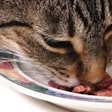Dr. Karen Wedekind has over 30 years experience as a nutritionist in the pet food industry, and has multi-species expertise in companion animals, poultry, swine, rats and horses. She has been an author/co-author on 24 patents and 33 peer-reviewed publications primarily focused on minerals, antioxidants, and development of animal models to assess nutrient requirements, bioavailability and role of trace minerals in lameness.
Karen Wedekind, PhD
From the Author
Page 1 of 1




